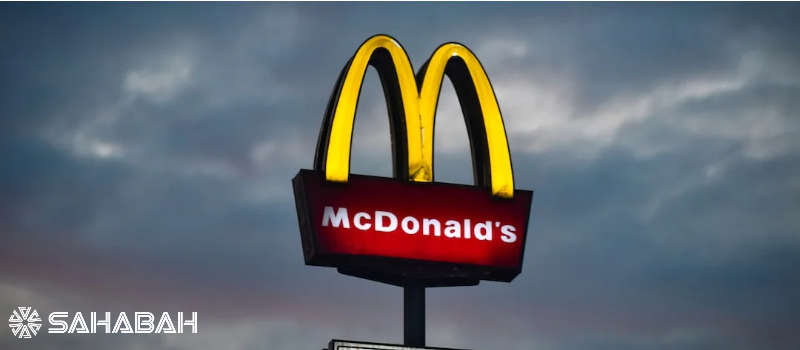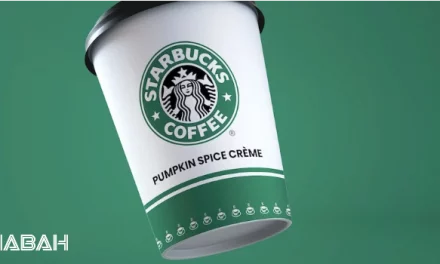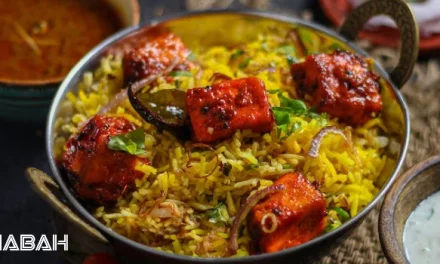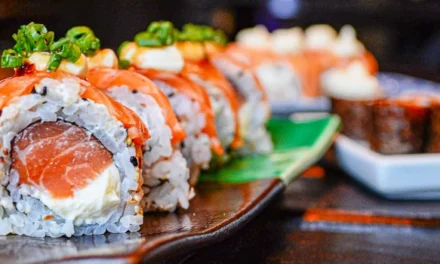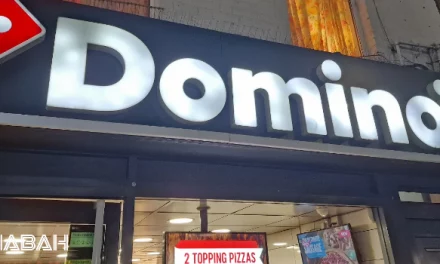With over 38,000 locations in more than 100 countries, McDonald’s is undoubtedly one of the most ubiquitous and popular fast food chains worldwide. The famous Golden Arches span 6 continents, serving millions of hungry customers daily.
Given its global reach, McDonald’s naturally attracts a very diverse customer base. A significant segment includes observant Muslims who adhere to halal dietary restrictions outlined in Islamic law.
This gives rise to an important question many Muslim consumers ask: is McDonald’s halal?
This comprehensive guide takes an in-depth look at McDonald’s halal certification, ingredients, food preparation methods and more. The goal is to provide transparency so you can determine if their menu offerings adhere to halal standards.
Let’s explore the specifics:
Understanding Halal Food Standards
Before evaluating McDonald’s halal compliance, it helps to understand what constitutes halal food in Islam.
Halal is an Arabic word meaning “permissible” or “lawful”. It refers to foods, products, and actions that are allowed under Islamic law. Here are key dietary guidelines Muslims follow:
-
Meat must come from halal slaughtered animals. For red meat or poultry to be considered halal, zabiha slaughtering guidelines must be followed. This includes invoking Allah’s name during slaughter, using a sharp knife for a swift kill, and allowing blood to fully drain from the carcass.
-
No pork consumption. Pork and products containing pork in any amount are haram (impermissible). This includes bacon, ham, pepperoni, pork gelatin, and more.
-
No alcohol. Alcoholic beverages or foods prepared with alcohol cannot be consumed according to sharia principles.
-
No carnivorous animals. Predators such as lions, bears, or snakes are forbidden.
-
Fish and seafood must have scales and fins. Shellfish such as shrimp, lobster, crab and oysters are haram.
-
Dairy, eggs, fruits, vegetables, plants, and grains are halal. As long as they don’t contain haram substances.
For a restaurant to have certified halal offerings, their menu items and preparation procedures must adhere to these and other Islamic dietary regulations. Now let’s see how McDonald’s measures up.
Does McDonald’s Have Official Halal Certification?
One big question is whether McDonald’s restaurants worldwide have actual halal certification from an accredited organization. The answer depends on the country:
-
In non-Muslim majority nations, McDonald’s does not have halal certification at the corporate or franchise location level. However, they aim to adhere to general halal standards in their ingredients and sourcing.
-
In Muslim-majority countries, McDonald’s pursues halal certification from local accredited bodies to meet consumer demand. For example, all McDonald’s locations in Malaysia are halal certified by JAKIM, the Department of Islamic Development Malaysia. UAE locations have ESMA or Emirates Authority for Standardization and Metrology certification.
So while McDonald’s is not universally certified halal, they tailor their certification approach based on the predominant religious demographic of the region. This caters to Muslim consumer concerns in Islamic nations.
A Look at Menu Items: What’s Halal and Haram at McDonald’s?
When perusing the McDonald’s menu, which items are likely to be halal compliant and which are haram restricted for observant Muslims?
Here is a breakdown of common McDonald’s menu categories and typical halal status:
Beef Burgers and Sandwiches
-
Beef patties used in burgers and sandwiches are certified halal. McDonald’s only uses beef from halal approved slaughtered cattle.
-
Buns, cheese, lettuce, sauces and other toppings are halal. No pork or alcohol containing ingredients are used.
-
Quarter Pounder, Big Mac, Cheeseburger are all halal friendly.
Chicken Sandwiches and McNuggets
-
Chicken fillet in sandwiches and nuggets is halal. Sourced from halal slaughtered chicken.
-
Breading, sauces, and other ingredients are halal.
-
McChicken, Chicken McNuggets, and chicken wraps are halal approved.
French Fries
- McDonald’s fries are halal because they:
- Only use Russet potatoes, vegetable oil, salt and hydrogenated soybean oil for frying.
- Use dedicated vegetarian oil for frying, avoiding meat contamination.
- Fryers are cleaned between fish and meat items.
Fish Sandwiches
- Filet-O-Fish sandwich is halal as it contains:
- 100% Alaska Pollock fish fillet, which is a scaled fish.
- No meat-based ingredients.
Salads
- McDonald’s salads are halal since they contain:
- Grilled or crispy halal chicken strips.
- No croutons containing pork.
- Dairy and vegetable based dressings.
Desserts and Drinks
- Ice cream sundaes, McFlurries, shakes are halal because they use:
- Dairy and syrups only.
- No pork gelatin or alcoholic ingredients.
- Coca-Cola brand drinks are halal certified.
Breakfast Menu
- Egg McMuffin without bacon or sausage is halal since it contains:
- Halal certified eggs.
- No pork products.
- Pancakes and hash browns are halal.
Clearly Haram Menu Items
Of course, the following menu items are definitively haram forbidden due to pork or alcohol content:
- Bacon topped burgers like Bacon Clubhouse Burger.
- Sausage McMuffin with sausage patties.
- Sandwiches containing ham or pork.
- McCafé beverages containing alcohol like mochas or frappes.
So in summary, nearly all standard McDonald’s menu items, minus any bacon or pork, appear to meet general halal requirements. Muslims should of course check labels for latest ingredient information to be safe.
How McDonald’s Adheres to Halal Preparation Standards
In addition to halal ingredients, proper handling and preparation is key. McDonald’s implements these protocols to avoid cross-contamination and mixing of halal and non-halal food items:
- Surfaces, grills, and cooking oil vats are thoroughly cleaned and washed between handling different menu items.
- Separate utensils are designated for halal-only use during food prep.
- Crew members adhere to hand washing procedures before switching tasks.
- Halal certified products are stored separately from non-halal items during receiving, refrigeration, and serving.
With these precautions, food contact surfaces stay sanitary, cooking oil purity is maintained, and halal integrity is protected.
Additional Auditing for Halal Compliance
To ensure ongoing halal standards, McDonald’s operations are subject to third-party audits. Franchise locations certified halal undergo periodic inspections of:
- Food prep and handling procedures.
- Product storage and thawing areas.
- Cooking equipment cleaning processes.
- Ingredient and supplier records.
This accountability helps satisfy Muslim customers that adequate halal controls are in place.
Common Concerns Over Halal Authenticity
Some Islamic scholars and customers contend that McDonald’s halal compliance claims require more scrutiny. Two main concerns often raised are:
1. Risk of cross-contamination during meat processing and packing:
- Beef and chicken slaughterhouses may process both halal and non-halal meats on shared equipment.
- Further processing and packing may co-mingle halal beef or chicken with non-halal products.
2. Insufficient grill and surface cleaning between cooking meat items:
- Traces of pork or alcohol ingredients may remain on grills if cleaning is inadequate between cooking different burgers and sandwiches.
- Same utensils could be accidentally used for haram and halal menu items.
These are valid considerations. However, major halal certification organizations who audit McDonald’s procedures maintain they have sufficient protocols to minimize any real risk.
JAKIM and other agencies approve McDonald’s operations, meaning the probability of halal product contamination is reasonably low and acceptable.
The Verdict: Yes, McDonald’s Can Be Considered Halal
Given the above detailed analysis of their certification, ingredients, sourcing and handling, the evidence suggests McDonald’s does meet general halal standards, with some caveats:
-
Muslims who follow stricter interpretations may still avoid McDonald’s due to unresolved doubts over processing and contamination risks.
-
Conservative scholars may reject McDonald’s due to lack of universal halal certification.
However, for the average Muslim consumer who takes a balanced approach, eating McDonald’s food should be permissible and welcome.
Of course, individuals must make their own informed decision based on their level of observance and the availability of local halal certification. Open dialogue and transparency from McDonald’s to address concerns can help satisfy more customers.
At the end of the day, McDonald’s likely takes more precautions to deliver halal compliant menu items than most other major fast food chains. Their efforts to adapt to Muslim consumer needs is admirable and on the right path forward.
So based on the evidence, consuming McDonald’s food is permissible for most Muslims seeking a convenient halal meal.
Is Mcdonalds Halal – FAQ
Yes, McDonald’s offers halal food options in some countries to cater to the dietary needs of Muslim customers.
What does halal mean?
Halal refers to food that is prepared and produced according to Islamic dietary guidelines. It involves specific practices and the use of permissible ingredients.
Does McDonald’s use halal meat?
Yes, McDonald’s uses halal meat in its halal-certified products. However, it is important to note that not all McDonald’s locations globally serve halal meat.
Is all the meat used in McDonald’s halal?
No, not all the meat used in McDonald’s is halal. Only specific items on the menu are halal-certified, and they are served in countries where McDonald’s caters to the halal market.
How does McDonald’s ensure its halal food is prepared according to Islamic guidelines?
McDonald’s follows strict procedures to ensure that their halal food is prepared in accordance with Islamic guidelines. They have separate kitchen areas and specific protocols to prevent cross-contamination.
Can I find halal items on McDonald’s menu?
Yes, McDonald’s offers specific menu items that are certified halal in countries where it serves the halal market. These items are labeled and can be easily identified.
How do I know if a McDonald’s restaurant sells halal food?
You can check with your local McDonald’s restaurant or visit their official website to find out if they sell halal food. McDonald’s also sometimes mentions it on their signage.
Is McDonald’s halal certification globally recognized?
No, McDonald’s halal certification may vary from country to country. The certification is based on the requirements and standards set by local Islamic authorities.
Is McDonald’s meat sourced from halal suppliers?
Yes, McDonald’s sources meat from halal suppliers for their halal-certified products. They ensure that the ingredient sourcing aligns with halal practices.
Can I watch videos on YouTube about McDonald’s halal practices?
Yes, you can find videos on YouTube where people share their experiences and insights into McDonald’s halal practices in different countries.

